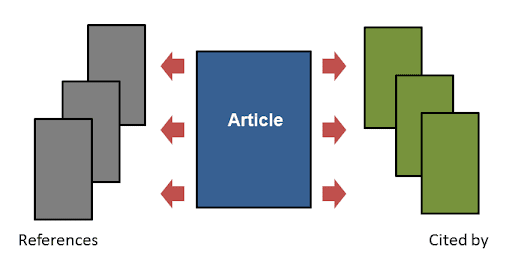What is the most efficient and thorough way to conduct a search? How to operate different databases and sources? What makes a source valuable and relevant? On this website, we introduce you to VGU-specific databases and internationally approved research strategies.
Introduction
What do you need to research? As you proceed in your studies, you will find yourself in the situation where you will need to research a topic, be it for a thesis, a literature review or a simple class paper. Of course a thesis or literature review will require a significantly higher research quality than a class paper. Nevertheless, the skills of sufficient research are the same for both. You will see that scientific research is a complicated procedure, considering the overwhelming mass of existing literature or the narrow range of your topic. There are countless databases with enormous amounts of journals, papers etc. and every database requires slightly different operators or sorts its data in different algorithms. Therefore, the VGU library gives you an overview over your available resources and how to handle them in this article. You can get a general overview of your available resources on the library homepage in the “resource” column, and in addition, we have linked the VGU databases here.
General tips
“A search strategy is an organised structure of key terms used to search a database. The search strategy combines the key concepts of your search question in order to retrieve accurate results”
–Develop a search strategy | Literature searching explained | Library | University of Leeds
Before and during your research, it is helpful to keep track of all the keywords, phrases and subject headings you searched for. Make yourself a list of every single keyword you want to research or have already researched, and optionally also all the databases you have already searched it in.
Think of all keywords you can look for and think of their synonyms, e.g. “self-esteem” means the same as “self-worth”. Look for all useful key terms and their synonyms. For the synonyms, you can use a thesaurus. Other ways to find key terms is to skim the search results on platforms such as Google Scholar or examine related abstracts. Keep looking for useful phrases to widen your search, later you can narrow it down to the selection of sources that you want and need to include.
Before looking those phrases and keywords up in a database, make sure to be familiar with the database’s algorithms and guidelines. For this, look up their guide or helpdesk. Every database has their own rules and operators, so be aware of that.
Generally speaking, however, here are some tips that are, more or less universally, applicable.
keywords vs. phrases
If you want keywords to appear next to each other in a specific order, meaning, if you want to search for a phrase as opposed to a keyword, make sure to put the phrase in quotation marks, or whatever the database uses in that case.
Boolean search
Boolean search is applicable in most databases. It uses the operators “AND”, “OR” and “NOT”. The usage of those operators in your search enables you to only look for articles that include both search terms (A AND B), include either search term (A OR B) or do not include a search term while including the other (A NOT B).

TRUNCATED AND WILDCARD VARIATIONS OF A SEARCH TERM
In English, most of the words have different variations, depending on their grammatical form, e.g. “woman” and “women”. Herefore, databases usually have a wildcard that enables the search for all terms possible, without having to type them all out. This can look like this: “wom?n”. This trick is helpful with variations of a word caused by dialect, e.g. “humour” (BE) and “humor” (AE). For specific formats, you should always check each database’s guidelines.
There are also words with slightly different meanings that are related to each other, e.g. “anthropology”, “anthropologist”, “anthropologists” etc. For this, too, there are shortcuts: “anthrop*”. This one is called a truncation.Remember to always check the guidelines, otherwise your search might be insufficient and not show you all results.
subject headings
Some databases have established so called subject headings, which group search results into categories. This way you can get an overview of related articles fairly quickly. However helpful, this approach should only compliment your research, not be your only strategy, as sometimes it narrows topics down and might give your research a bias.Thorough research takes every approach.
adanced settings
It is always recommended to use the database’s own advanced settings, which are unique to every database.
citation searching
An approach to find related topics, find more recent takes on the subject and to discover how the idea has been confirmed, applied, improved, extended or corrected is to follow its citings. Which papers the source cited from and how often it was cited itself tells you about its quality, too. Helpful websites for this method are Google Scholar, Web of Science and Scopus. Again, it is not advisable to only use this method for your research, as the risk of a bias is high.


Similar services
ILIT – Information Literacy courses
Here we give an overview over useful management tools, Turnitin, citing and referencing tools.
Different types of academic writing
Here we give an overview over many types of scientific writing you might use in your studies.

